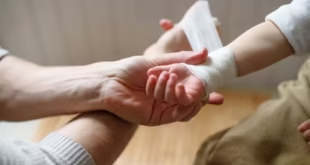Every individual deserves safety, respect, and dignity—especially in their own home. Yet for many, home can be a place of fear due to abuse by someone they trust. Navigating the domestic violence legal landscape can feel overwhelming, but understanding your rights is the first step toward safety and justice. This article outlines the legal protections available to domestic violence survivors, offering a clear path forward to reclaiming control, security, and peace of mind.
Domestic violence encompasses more than just physical harm. Legally, it is defined to include emotional abuse, financial manipulation, sexual coercion, and psychological control. The definitions can vary depending on jurisdiction, but most legal systems recognize a broad spectrum of abusive behavior within intimate or familial relationships. It is crucial for survivors to understand what constitutes abuse under the law. Documenting incidents—including threats, controlling behavior, or financial restriction—can provide powerful evidence in legal proceedings and enhance the likelihood of obtaining protective measures.
Understanding your rights in cases of abuse is pivotal for safeguarding personal dignity and justice. Legal frameworks provide survivors with powerful avenues of protection, including restraining orders and criminal prosecution. The domestic violence misdemeanor firearm ban ensures that offenders are restricted from possessing weapons, reinforcing safety while empowering victims to pursue accountability.
Survivors have access to a range of legal protections designed to prevent further harm. One of the most commonly utilized is the protective or restraining order, which legally prohibits the abuser from contacting or approaching the survivor. These can be obtained through the local court system and, in urgent situations, temporary emergency orders can be issued quickly by law enforcement or judges. Additionally, survivors retain rights throughout any criminal proceedings, including the right to be informed, to be protected from intimidation, and to provide input during sentencing.
Navigating the legal system doesn’t have to be done alone. Numerous legal aid organizations and pro bono attorneys specialize in domestic violence legal support. These professionals can help file for protection orders, represent survivors in court, and ensure their voices are heard. Victim advocacy groups also provide crucial assistance, from emotional support to logistical help with housing and safety planning. Many national and local helplines operate 24/7, providing guidance and resources tailored to each survivor’s unique situation.
Despite the legal structures in place, survivors often face significant barriers when seeking justice. Fear of retaliation, financial dependence on the abuser, social stigma, and lack of legal knowledge can all impede progress. That’s why safety planning, including preparing documents, securing shelter, and knowing emergency contacts, is so important. Encouragingly, countless survivors have navigated this path successfully, supported by compassionate legal teams and resilient personal determination. Their stories highlight the effectiveness of legal intervention in creating long-term change and protection.
Understanding domestic violence legal options is more than just gaining knowledge—it’s about empowerment. If you or someone you know is experiencing abuse, reach out to legal professionals, advocacy organizations, or helplines that specialize in domestic violence. The journey to justice starts with one step. Take it today—your safety and future are worth it.
 Legallity Your Legal Encyclopedia
Legallity Your Legal Encyclopedia



